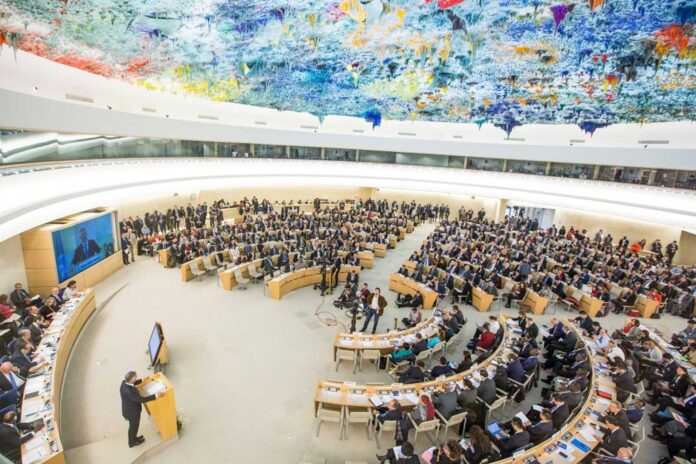The UN Human Rights Committee today raised concerns about alleged discrimination and violence against minority groups in India as well as the Armed Forces Special Powers Act (AFSPA) which is in force in northeast India for decades.
The UN Human Rights Committee in Geneva issued its findings on Croatia, Honduras, India, Maldives, Malta, Suriname and Syria after examining the seven States parties in its latest session.
The findings contain the Committee’s main concerns and recommendations on the implementation of the International Covenant on Civil and Political Rights, as well as positive aspects.
On India, while appreciating the measures adopted by it to address discrimination, the Committee expressed concern about alleged discrimination and violence against minority groups, including religious minorities, such as Muslims, Christians, and Sikhs, “scheduled castes” and “scheduled tribes”, and LGBTI people.
It called upon India to adopt comprehensive legislation prohibiting discrimination, raise awareness among the general public, and provide training to civil servants, law enforcement officers, the judiciary and community leaders to promote respect for diversity.
India has repeatedly said that its Constitution guarantees freedom of religion to all its citizens and there are no grounds for any concern on treatment of minorities.
The Committee was concerned that some provisions of AFSPA and counter-terrorism legislation are not in compliance with the Covenant.
“The Committee also voiced its concern over the application of counter-terrorism legislation for decades in “disturbed areas”, such as districts in Manipur, Jammu and Kashmir and Assam, has led to widespread and grave human rights violations, including excessive use of force leading to unlawful killings, prolonged arbitrary detention, sexual violence, forced displacement and torture.”
The Committee urged India to comply with its obligations under the Covenant and to ensure that counter-terrorism and other security measures in disturbed areas are temporary, proportionate, strictly necessary and subject to judicial review. It also asked India to establish a mechanism to initiate a process to acknowledge responsibility and ascertain the truth regarding human rights violations in disturbed areas.










